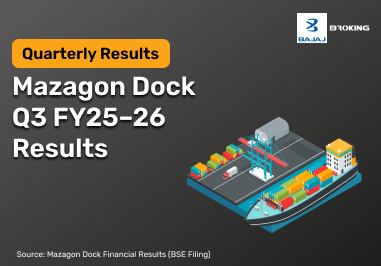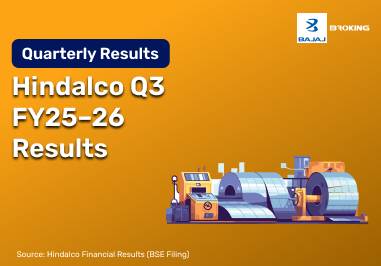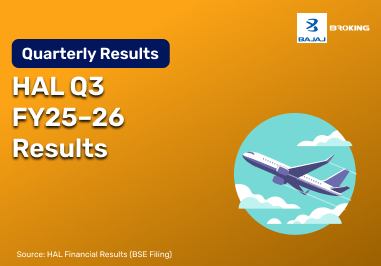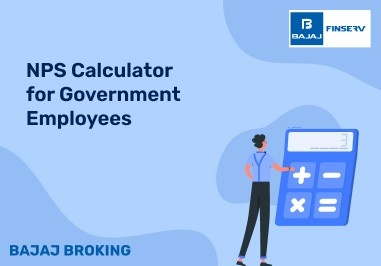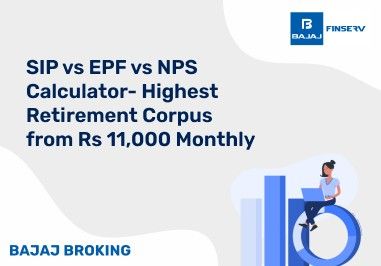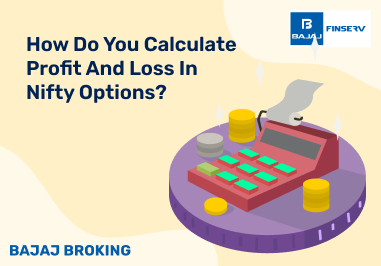What is FINNIFTY?
FINNIFTY, or the Nifty Financial Services Index, represents the capability of the financial services sector of the Indian economy within the stock market. It’s like a window into the performance of financial institutions, insurance companies, banks, housing finance companies, and other financial services entities listed on the National Stock Exchange (NSE).
FINNIFTY is an index comprising up to 20 top financial services companies by market capitalisation. These are the heavyweights of the industry, and their performance can be seen as a barometer for the financial sector’s health. The index provides a benchmark for investors and market analysts to gauge market trends, making FINNIFTY a key point for investment decisions related to the financial services sector.
Additional Read: Nifty 50: Premier Stock Market Index
How is FINNIFTY calculated?
The calculation of FINNIFTY, like any stock index, is based on the methodology that considers the market capitalisation of its components. Market capitalisation is essentially the market value of a company’s outstanding shares. To ensure the index accurately reflects the market, FINNIFTY is calculated using the free float market capitalisation-weighted method. This means only shares that are available for trading, excluding promoters’ holdings and other locked-in shares, are considered in the calculation.
Its weightage is dynamic and can shift with market fluctuations and periodic reviews. Each company’s weight in the index is capped to prevent any single entity from exerting excessive influence on the index’s movement. This weightage is crucial as it determines the impact a company’s performance will have on the index. Regular updates are made to ensure that the components and their weightage accurately represent the current state of the financial services market.
Additional Read: Nifty IT
How to trade in FINNIFTY?
Trading in FINNIFTY is similar to dealing with other stock market indices. You can engage in trading through derivative instruments like futures and options contracts, which are available on the NSE. Here’s a simple breakdown:
– Futures Trading: You can buy or sell FINNIFTY futures contracts based on your analysis or speculation of future movements in the financial sector.
– Options Trading: You have the choice to buy options that give you the right, but not the obligation, to buy (call option) or sell (put option) the FINNIFTY at a specified price within a predetermined period.
It’s essential to approach trading with caution and a solid strategy, as these instruments can be volatile and involve substantial risk. For beginners, it’s advisable to consult with financial advisors or engage in thorough research before diving into FINNIFTY trading.
FINNIFTY Stocks and their Weightage
The FINNIFTY index, also known as the Nifty Financial Services Index, comprises 20 prominent companies from the financial sector. This index serves as a key indicator of the performance of major players in the Indian financial market, including banks, insurance firms, and non-banking financial companies (NBFCs). The weightage assigned to each stock in the FINNIFTY index is based on its free float market capitalization, reflecting the company's available shares for trading.
The largest component of the FINNIFTY index is HDFC Bank Ltd., which holds a significant weightage of 22.33%, demonstrating its dominant position in the financial services sector. Other major contributors include ICICI Bank Ltd. and SBI Ltd., with weightages of 14.89% and 13.28%, respectively. This diverse representation of stocks allows investors to gain insights into the overall health of the financial sector.
Below is a detailed table of the stocks included in the FINNIFTY index along with their respective weightages:
Name of the Company
| Weightage in FINNIFTY (in %)
|
HDFC Bank Ltd.
| 22.33
|
ICICI Bank Ltd.
| 14.89
|
SBI Ltd.
| 13.28
|
Bajaj Finance Ltd.
| 8.54
|
Kotak Mahindra Bank Ltd.
| 6.92
|
Axis Bank Ltd.
| 6.41
|
Bajaj Finserv Ltd.
| 5.19
|
SBI Life Insurance Co. Ltd.
| 2.42
|
Power Finance Corp.
| 2.58
|
HDFC Life Insurance Co. Ltd.
| 2.56
|
The index also comprises stocks from companies such as Chola Investment and Finance Co., ICICI Lombard, ICICI Prudential, Muthoot Finance, Piramal Enterprises, Power Finance, REC, SBI Card, and Shriram Finance. As market conditions evolve, the weightages may shift, so it's important for investors to keep track of the latest composition of the FINNIFTY index.
Additional Read: NIFTY 50 vs NIFTY Alpha 50
FINNIFTY Derivative Settlement Dates
FINNIFTY derivatives, which include futures and options contracts, have specific settlement dates that are crucial for traders. These contracts are settled on both a weekly and a monthly basis. For monthly contracts, the settlement occurs on the last Tuesday of the expiry month. If that Tuesday happens to be a holiday, the settlement will take place on the previous trading day. On the other hand, weekly contracts expire on the Tuesday of the expiry week, providing traders with flexibility in their trading strategies.
This structured settlement schedule is designed to facilitate trading efficiency and liquidity within the FINNIFTY market. Understanding these dates is essential for traders looking to optimize their strategies and manage risks effectively. By adhering to the FINNIFTY expiry day schedule, traders can better position themselves in response to market movements and capitalize on potential opportunities.
What comprises the FINNIFTY index?
Banks: The FINNIFTY index includes a significant portion of both private and government banks, reflecting their essential role in providing loans and financial services.
Housing Finance Companies (HFCs): These firms offer home loans and act as indicators of the housing market's performance, highlighting their importance in the financial ecosystem.
Non-Banking Financial Companies (NBFCs): These institutions provide lending services and other financial amenities without holding a banking license, thus catering to consumer and business needs.
Insurance Firms: The index comprises various insurance providers that offer life, health, car, and home insurance, crucial for managing risks and enhancing financial stability.
Investment Management Firms: This category includes companies that facilitate investments, such as mutual funds, allowing investors to diversify their portfolios and engage in financial markets.
Market Capitalization Methodology: The index utilizes a free float market capitalization method, ensuring that only publicly traded shares are factored into the calculation, providing an accurate reflection of market performance.
This diverse composition of the FINNIFTY index not only reflects the overall health of the financial services sector but also serves as a benchmark for traders and analysts to evaluate market trends.
What are the features of FINNIFTY?
The FINNIFTY index offers a comprehensive overview of the financial services sector, including banks, insurance companies, and non-banking financial firms. One of its primary features is its market capitalization-based weighting system, which ensures that companies with a larger market presence have a more significant impact on the index's movement. This feature allows investors to gain insights into the performance of major players in the industry, thereby making informed investment decisions.
Another notable feature of FINNIFTY is its diverse composition, which includes 20 of the top-performing financial institutions in India. This diversity helps mitigate risks associated with sector-specific downturns, providing a more stable investment vehicle. Additionally, the index is frequently reviewed and updated to reflect current market conditions, ensuring that it remains relevant for traders and analysts. Overall, FINNIFTY serves as a critical benchmark for assessing the financial sector's health and trends.
Key Differences between FINNIFTY & BankNifty
Feature
| FINNIFTY
| BankNifty
|
Focus
| Broader financial services sector
| Exclusively focuses on the banking sector
|
Constituents
| Includes 20 financial companies (banks, NBFCs, insurance)
| Comprises 12 major banking stocks
|
Risk Profile
| More diversified due to varied financial services
| Higher concentration risk from banking stocks
|
Market Representation
| Represents overall financial market trends
| Represents banking sector performance
|
Weightage Methodology
| Free float market capitalization
| Free float market capitalization
|
Use Case
| Ideal for investors seeking diverse exposure to finance
| Suited for those focusing solely on banking
|
Liquidity
| Generally high due to multiple sectors
| Typically very high due to bank trading volume
|
Settlement Dates
| Settles on a specific day each month
| Follows a similar settlement schedule
|
This table provides a comprehensive overview of the distinctions between the two indices, helping investors and traders make informed decisions based on their investment strategies and risk appetites.
Sectors Involved In FINNIFTY
The FINNIFTY index is composed of companies spanning various sub-segments of the financial services sector. This includes:
- Banks: This group is a big chunk of FINNIFTY, with both government-owned and private banks included. Government banks reach out to large parts of the country, and private banks bring in new ways to help customers.
- Housing Finance: These companies give out home loans and are a sign of how well the housing market is doing. They play a key role in the economy, which is reflected in FINNIFTY.
- Non-Banking Financial Companies (NBFCs): NBFCs lend money and offer other banking services but don’t hold a bank license. They fill in gaps, serving customers and businesses in ways that traditional banks might not.
- Insurance: Firms that offer life or health insurance, or cover for things like cars and houses, are also in FINNIFTY. They help people manage risks in their lives and are an important part of the financial picture.
- Other Financial Services: This includes companies that manage investments, like mutual funds, or help people buy and sell stocks. They help people make the most of their money and add to FINNIFTY’s range.
Additional Read: Nifty AUTO
Why Should You Invest?
- Diversification: Investing in FINNIFTY allows you to diversify your portfolio across the top financial services companies without having to invest in each one individually.
- Sector-Specific Exposure: If you have a bullish outlook on the financial services sector, investing in FINNIFTY gives you direct exposure to its potential growth.
- Trading Flexibility: With options like futures and options, you can strategise your trades according to market movements and your risk appetite.
- Liquidity: FINNIFTY derivatives are usually highly liquid, allowing for easier entry and exit from the market.
- Hedging: You can use FINNIFTY to hedge against your exposure in the financial services sector, protecting your portfolio from adverse movements.
- Lower Costs: Trading in index derivatives can be more cost-effective compared to taking positions in individual stocks.
- Benchmarking: FINNIFTY serves as a benchmark for the financial sector, helping in the assessment of performance and allocation of assets.
Additional Read: Nifty 100
Key Factors to Consider Before Investing in FINNIFTY
Now that you know the meaning of FINNIFTY, you may want to invest in it to get sector-specific exposure. But before you do, here’s a list of factors you should consider carefully:
- Sector-Specific Exposure: FINNIFTY represents only the financial services sector, offering targeted exposure but lacking broader market diversification.
- Constituent Influence: Heavyweights like HDFC Bank and ICICI Bank hold high weightage and can significantly affect index movement.
- Calculation Method: It uses free-float market capitalization, reflecting actively traded shares and real-time market trends.
- Rebalancing Frequency: The index is reviewed and adjusted semi-annually to maintain relevance with leading financial stocks.
- Investment Avenues: Exposure can be gained through ETFs, index funds, and derivatives like FINNIFTY futures and options.
- Economic Correlation: Its performance is closely linked to macroeconomic indicators such as interest rates and GDP growth.
- Use in Strategies: It is useful for benchmarking and hedging financial sector risks in a diversified portfolio.
Potential Risks Involved in FINNIFTY Investments
Here’s a list of potential risks you should be aware of when investing in FINNIFTY:
- Limited Diversification: Since it tracks only financial stocks, it is more vulnerable to sector-specific downturns.
- High Volatility: Policy shifts, monetary decisions, and global financial news can cause sharp index fluctuations.
- Economic Sensitivity: A slowdown or recession directly affects the profitability of banks and NBFCs within the index.
- Regulatory Risks: Any change in banking or finance-related regulations can impact stock valuations significantly.
- Interest Rate Exposure: Rising interest rates may lower lending margins and affect investor sentiment toward the sector.
Conclusion
Understanding FINNIFTY is a step towards gaining a deeper insight into the complexities of the Indian stock market. It offers you an instrument for diversification, a measure of sector-specific growth, and a vehicle for strategic trading. Whether you’re aiming to trade, invest, or simply stay informed, keeping an eye on FINNIFTY can provide you with insights and opportunities in the financial sector.
Remember, investing in the stock market, particularly in indices involves risk, and it’s crucial to do your homework or consult with financial experts before making investment decisions.
Additional Read: What is Nifty Private Bank Index
Disclaimer: Investments in the securities market are subject to market risk, read all related documents carefully before investing.
This content is for educational purposes only.


